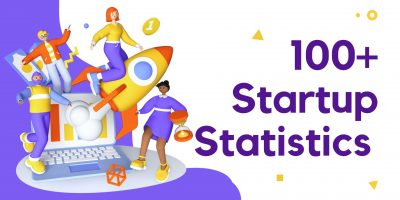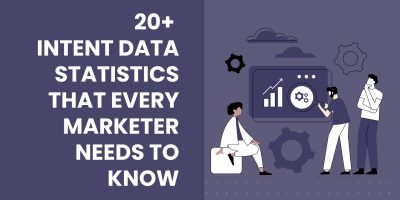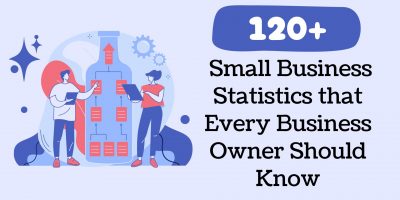
100+ Startup Statistics in 2024
Instead of following, startups create trends. But how big an impact do they have on the global economy and the workforce?

B2B buyers perform individual and extensive research online, and it usually ends with an online purchase. Hence, sales teams face various challenges in today’s digital landscape. Almost 60% of B2B buyers prefer not to interact with a salesperson in their buyer’s journey. This clearly illustrates the need for a customer-first sales strategy responsive to prospects’ needs and pain points, and buyer intent data can exactly do that.
Intent data is a great asset for sales teams, and it can help them:
Most importantly, intent data allows sales reps to identify in-market prospects and interact with them before it‘s too late.
According to statistics, 97% of sales professionals consider sales technology a “very important” part of their job. This is where intent data comes into play.
65% of B2B buyers prefer when a sales rep meets the needs of their buying process and addresses concerns with targeted messaging and content. Moreover, these B2B buyers refer to the above as a positive buying experience.
When used for sales purposes, intent data covers these aspects and allows sales reps to build an effective and holistic sales strategy.
Buyer intent data is a powerful data intelligence tool that collects prospects’ behavioral signals, revealing their intent. Sales teams can leverage this valuable data in various ways:
57% of the B2B buyers have already decided before contacting a sales representative. By this time, they searched for products and solutions online, consuming various content pieces, and making comparisons without the influence of sales teams.
Intent data highlights the importance of prospects’ identification early in the buyer journey. It enables sales professionals to observe buyers while browsing and helps understand their needs and pain points.
Furthermore, it allows sales teams to reach accounts across the full funnel and act accordingly.
Around 34% of sales professionals say that prospecting and lead qualification is their biggest challenge. Intent data has reinvented the process of prospecting and finding SQLs.
Instead of using cold calls and emails to uncover hot prospects, sales teams can streamline a prospecting pipeline of qualified leads with intent data. Ultimately, intent prospecting eliminates the guesswork from prospecting strategies.
Intent data can make sales teams’ jobs easier, faster, and more efficient.
Sales professionals can save precious time and be more productive by:
81% of marketers share goals and metrics with sales professionals. Consequently, most of the strategies they use often overlap to create the best results. Both marketing and sales teams use intent data for personalization.
Marketers use intent data to create personalized, targeted campaigns for individual accounts and provide them with the content they are interested in.
Sales reps, on the other hand, use this data to create personalized (instead of generic) pitches for each account.
Moreover, stats show that 75% of consumers are more likely to buy something from a salesperson who recognizes them by name, recommends options or products related to past purchases, or is aware of their purchase history.
Therefore, using intent data for personalized sales strategies can easily transform prospects into customers.
47% of buyers consume three to five pieces of content before engaging with a salesperson, and most of them expect brands to create content to gain their interest.
By understanding their prospects’ interests, sales teams can reach out to qualified leads with personalized messages and prioritize targets during the sales process.
Ultimately, the valuable insights intent data provides help 99% of sales professionals close more deals and improve ROI.
User-behavior signals provided by intent data can provide significant value to sales teams.
From uncovering new qualified leads and creating meaningful relationships with prospects to driving more sales, intent data is a cutting-edge tool for an effective sales strategy.
It simplifies sales reps’ jobs, making them more efficient and productive. It helps them better understand customers’ behavior and intent. It allows sales teams to engage with prospects at the most appropriate time, offering them relevant solutions to their needs and pain points.
Browse our curated list of vendors to find the best solution for your needs.
Subscribe to our newsletter for the latest trends, expert tips, and workplace insights!

Instead of following, startups create trends. But how big an impact do they have on the global economy and the workforce?

Explore valuable intent data statistics to learn how it can help companies better understand prospects and offer adequate solutions to their needs.

From growth trends to access to funding – equip yourself with insights to stay ahead of the curve and elevate your small business potential.

Understanding how interest earnings accumulate in a deferred annuity is crucial for making informed decisions about retirement planning. Explore the concept of deferred annuities, how interest earnings accumulate in deferred annuities, and the types of deferred annuities available in the market.
Used by most of the top employee benefits consultants in the US, Shortlister is where you can find, research and select HR and benefits vendors for your clients.
Shortlister helps you reach your ideal prospects. Claim your free account to control your message and receive employer, consultant and health plan leads.